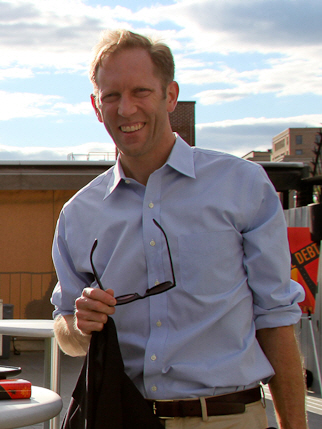We have received a number of calls on whether a combination of Yahoo and Disney would make sense. We believe an investment would be much more likely. Given that AOL-Time Warner is likely to be a real entity within a few weeks, creating a very strong global integrated media and Internet competitor, we believe other media companies will be looking to create similarly powerful internet strategies.

"Henry Blodget" is an American former securities analyst/equity research analyst who was senior Internet analyst for CIBC World Markets/CIBC Oppenheimer and the head of the global Internet research team at Merrill Lynch during the dot-com bubble. Blodget is now the editor and CEO of The Business Insider, a business news and analysis site, and a host of Yahoo Daily Ticker, a finance show on Yahoo. He is permanently banned from involvement in the securities industry.
More Henry Blodget on Wikipedia.It looks like a bubble, but the underlying trend is too powerful to ignore.
Our preliminary conclusion is that, although Microsoft is not out of the woods, it will be slightly more free to compete on its own terms than we expected it would.
Thus, we regard the ruling as an incremental positive for the stock.
We do not expect significant upside to our estimates. As we have said before, we believe the company is going through an awkward transition from a hyper-growth, revenue momentum story to a long-term growth and earnings story. Despite its growing pains, we continue to believe long-term, patient investors will be rewarded.
We can imagine an aggressive case calling for $2.7 billion of revenue by 2005 and $2.34 in earnings per share.
We continue to believe that there is no legal or competitive justification for blocking the deal.
The majority of today's pure-play Internet companies will never make money and will not exist in three-to-five years. There will be a lot of consolidation and a lot of failure, and ultimately valuations will fall more in line with historical norms.
We are simply exhausted by the endless postponement of financial gratification - and we think other investors are, too.
Copyright © 2024 Electric Goat Media. All Rights Reserved.